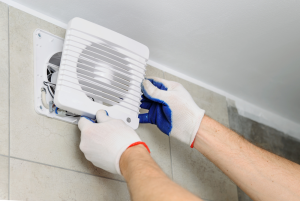Septic tanks are an essential part of any property’s plumbing system, especially for those who live in rural areas. These underground tanks are designed to hold, treat and break down waste from homes and businesses that are not connected to a centralized sewage system.
However, septic tanks require careful maintenance to function properly and owners often wonder whether household cleaning agents can harm the tank’s bacteria. One common question that arises is whether vinegar, a widely used household cleaning agent, can kill septic tank bacteria?.
In this article, we will explore the impact of vinegar on septic tanks and their bacterial populations. We will also discuss the importance of maintaining a healthy bacterial balance in septic tanks and provide tips for keeping them functioning effectively.
What is Vinegar, and How is it Used?
Vinegar is a sour-tasting liquid produced from the fermentation of ethanol. Most varieties are produced using grains or fruit as their source, with apple cider vinegar being an especially popular variety. Vinegar has many uses around the home from cleaning to cooking, and is an indispensable component in many recipes.

Vinegar has long been seen as an environmentally friendly and natural cleaning agent, particularly among households seeking alternatives to harsh chemicals. It can be used for everything from wiping floors, kitchen sink, windows and countertops clean to bathroom cleaning as well as disinfection of septic tanks and their associated bacteria populations. Yet some may raise questions regarding this usage.
How Do Septic Tanks Work?
Septic tanks are large underground storage tanks used to collect and treat waste from homes and businesses that don’t connect to a centralized sewage system. Common materials for these tanks include concrete, fiberglass, or plastic and they should be located outside a property to treat wastewater in an eco-friendly way without risk to public health or the environment.

As wastewater enters a septic tank, it separates into three distinct layers. The top layer consists of oils and fats which float to the top while heavier solids settle to the bottom of the tank. Finally, in between lies liquid effluent which flows out and into a leach field to be further treated before dispersion into soil.
An effective septic tank treatment process relies on naturally occurring bacteria to break down organic material in wastewater. For proper functioning, these organisms need the optimal conditions of nutrients, temperature and pH in order to thrive. So maintaining a balanced ecosystem in a septic tank is paramount for optimal functioning.
6 Common Causes of Septic Tank Problems
1. Lack of Regular Maintenance
Septic tanks require regular maintenance to ensure their proper functioning. Without regular pumping and inspection, solids can build up in the tank and cause it to overflow or become clogged. This can lead to costly repairs and potential environmental hazards.
2. Flushing Non-Biodegradable Items
Flushing non-biodegradable items down the toilet can clog the septic tank and prevent it from functioning properly. Items such as paper towels, baby wipes, sanitary napkins and cooking grease should never be flushed down the toilet. These items can cause blockages and damage to the septic system.
3. Overloading the Septic Tank
Septic tanks have a finite capacity and can only handle a certain amount of wastewater at a time. Overloading the system with excessive water usage can cause it to become overwhelmed and lead to system failure. This can be especially problematic during heavy rainfall or when large amounts of water are used, such as when doing laundry or taking long showers.
4. Chemical Overuse
The use of harsh chemicals, including bleach, drain cleaners, and other cleaning agents, can harm the bacterial balance in the septic tank. These chemicals can kill off the beneficial bacteria responsible for breaking down waste, leading to system failure.
5. Tree Root Infiltration
Tree roots can infiltrate septic system pipes and cause damage. As trees grow, their roots can penetrate and crack the pipes, leading to leaks and blockages. Homeowners should avoid planting trees and large shrubs near the septic system to prevent this from happening.
6. Aging Septic System
Septic systems have a lifespan and will eventually need to be replaced. An aging septic system can experience problems such as leaks, clogs, and backups. If your septic system is over 20 years old, it may be time to consider replacing it to prevent costly repairs and potential environmental hazards.
Can Vinegar Kill Septic Tank Bacteria?
Vinegar is an effective natural cleaning product but its acidic nature may negatively impact bacterial populations in a septic tank. Although small doses are unlikely to harm its ecosystem, excessive use can have detrimental results on bacteria balance.
Acidic cleaning agents like vinegar can lower the pH levels in a septic tank and damage its bacteria responsible for breaking down waste, while killing off other beneficial ones that break down solids in the tank – potentially leading to blockages that could eventually overflow and overfilling.
Vinegar can disrupt the delicate balance in a septic tank if used excessively, so homeowners are advised to limit its use in their home as an acidic cleaner, including vinegar. Instead, environmentally friendly cleaning agents that won’t disturb this delicate balance should be chosen instead.
5 Tips for Maintaining a Healthy Bacterial Balance in a Septic Tank
Maintaining an ideal bacterial balance in a septic tank is crucial to its efficient operation and here are some helpful tips for doing just that:
1. Pump the Septic Tank Regularly: Regular pumping of the septic tank can remove solids that have built up in it and help protect the leach field from becoming clogged with solid waste. Pumping frequency depends on tank size and household occupant numbers; generally speaking, most septic tanks should be pumped once every three to five years.

2. Use Septic-Safe Products: For optimal bacterial balance in your septic tank, it is crucial that you use products designed specifically to be compatible with septic systems and less likely to harm bacterial populations in the tank. Homeowners should avoid harsh chemicals and solvents that could kill off any vital organisms found therein.
3. Avoid Flushing Non-Biodegradable Items: Flushing non-biodegradable items like diapers, sanitary napkins and wipes down the toilet can clog your septic tank and prevent it from functioning properly. Homeowners should only flush biodegradable materials like toilet paper and human waste down their toilet.
4. Avoid Pouring Grease and Oil Down the Drain: Grease and oil can clog the septic tank and hinder its proper function, so homeowners should refrain from pouring them down their drain and instead dispose of them responsibly in the trash can.
5. Maintain the Leach Field: The leach field is a crucial component of septic systems, dispersing liquid effluent from septic tanks into the soil and dissipating into groundwater sources. Homeowners should avoid parking or driving on leach fields to reduce compaction of soil and facilitate absorption of effluent into groundwater sources. In addition, homeowners should not plant trees or shrubs nearby since their roots could penetrate pipes and cause significant damage.
FAQs
Vinegar may be an effective natural cleaning product, but excessive usage could disrupt the delicate balance in a septic tank’s microbiome and compromise its health. Therefore, homeowners are advised to limit the use of acidic cleaning agents like vinegar in their home in order to preserve an appropriate bacterial balance for optimal functioning in their septic tanks.
Homeowners should refrain from flushing non-biodegradable items down their toilet, such as diapers, sanitary napkins and wipes. Only biodegradable materials like toilet paper and human waste should be flushed down this toilet.
When your septic system becomes clogged, it is imperative to call in a professional plumber or contractor immediately. They can assess the damage and identify an appropriate strategy for fixing it; homeowners should never attempt to repair their own septic systems as doing so can be hazardous and lead to further damages.




